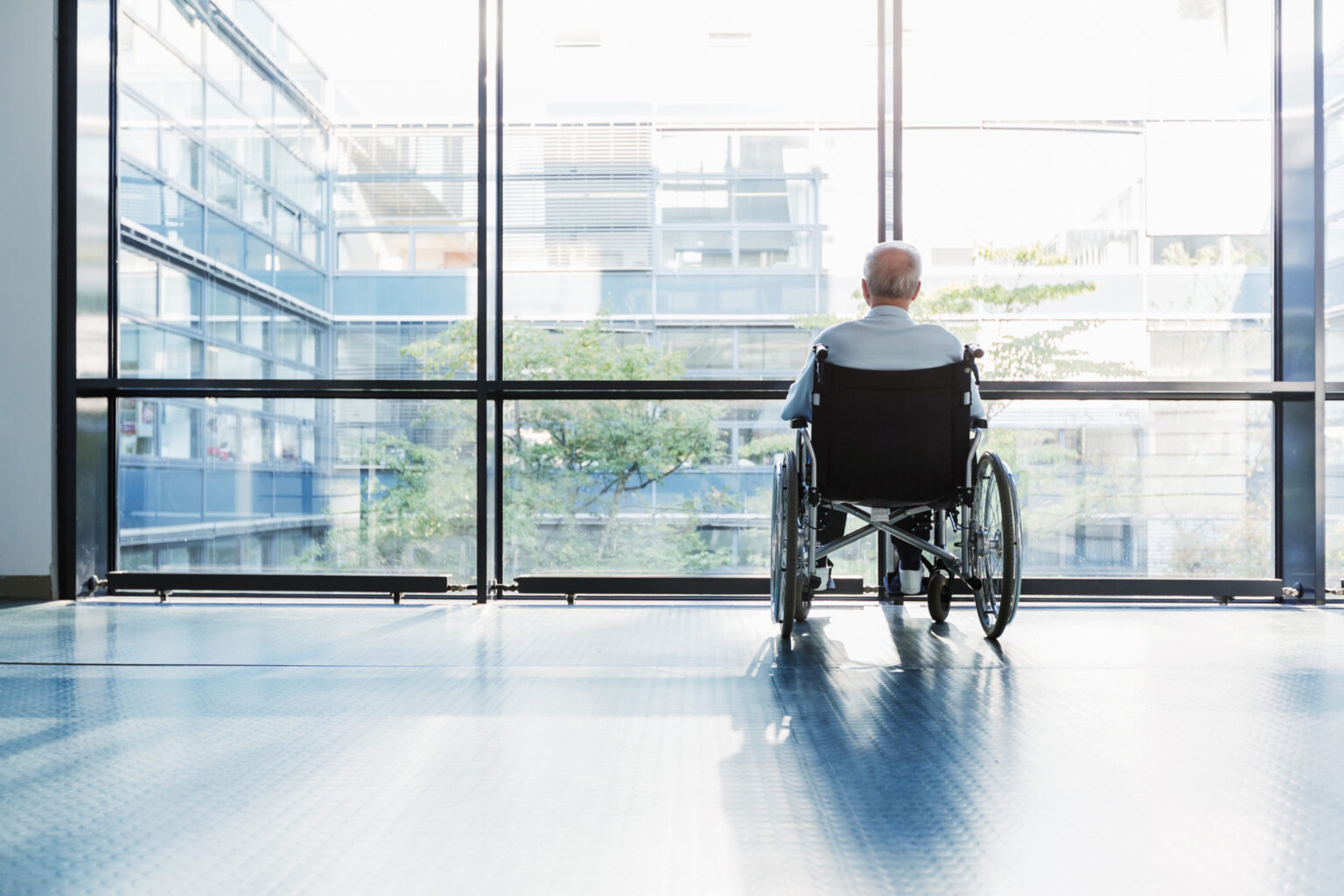How Common Is Nursing Home Abuse?

The idea of nursing home abuse is shocking and heartbreaking, especially when you think about Chicago’s strong sense of community. Despite a thriving healthcare network in our city, too many seniors fall victim to mistreatment in care facilities like nursing homes and assisted living facilities. According to studies, nearly one in three nursing home residents experience some form of abuse or neglect during their stay—a staggering statistic that sheds light on this hidden issue. However, experts warn that these numbers are likely understated.
Why? Because nursing home abuse often goes unreported. Vulnerable residents may be afraid to speak out or may lack the ability to communicate effectively due to cognitive impairments like dementia or Alzheimer’s. Others might fear retaliation from staff or feel too ashamed to disclose what they’ve endured. Without regular visits from family as advocates, these signs of physical abuse and neglect can go unnoticed for far too long.
The legal team at Walner Law recognizes the weight of these statistics, but each case is personal to us. Our attorneys are here to fight for elderly residents and their families in every corner of Chicago.
Types of Nursing Home Abuse and Neglect
Nursing home abuse can occur in many forms, each violating a resident’s dignity and well-being. Common types include:
- Physical abuse – Infliction of harm through physical force, including hitting, pushing, or restraining residents inappropriately.
- Emotional abuse – Mental abuse includes verbal insults, threats, intimidation, or isolation from other residents or loved ones.
- Sexual abuse – Any non-consensual sexual interaction, including inappropriate touching or assault.
- Financial abuse – Financial exploitation, theft of money, possessions, or manipulation to alter financial documents.
- Neglect – Failing to meet the resident’s basic needs, such as hygiene, food, or medical care.
No matter the type of mistreatment, Walner Law is prepared to stand up to negligent nursing home facilities and fight for accountability.
How to Choose a Nursing Home in Chicago
When choosing a nursing home for your loved one in the Chicago area, it is important to do your due diligence. Research is key to ensuring residents get the care they need from trusted individuals. One of the first things to look at when exploring nursing homes is their standing, according to the Federal Center for Medicare & Medicaid Services (CMS).
CMS ranks these care facilities on a scale of 1 to 5, with 5 being “much above average” and 1 being “much below average.” Rankings are based on factors such as reported nursing home abuse and neglect. In the Chicago area, 81 nursing homes have recently received a score of 1, and an additional 81 facilities received a score of 2, or “below average.”
Nursing homes in Chicago are overseen by the Illinois Department of Public Health. Start touring nursing homes after finding which facilities have a rating of 4 (“above average”) or 5. Schedule appointments with managers and take a tour of the facilities, paying close attention to staff presence and the behavior of residents. You will need to ask questions, particularly if your loved one suffers from issues such as dementia or another age-related disorder that necessitates special care.
Gauge your comfort with the staff and management’s responses, but do not make any hasty decisions. Take your time to visit several facilities before finally choosing the right home that can give your loved one adequate care when they need it the most.
Nursing Home Residents’ Rights

Elderly residents and care home residents alike have rights under the Nursing Home Care Act that are protected by Illinois and federal law.
Before a person becomes a resident of a long-term care facility, the nursing home must provide them with a copy of their rights, which generally include factors such as:
- The right to be treated with dignity and respect
- The right to be informed of your medical care and medications
- The right to refuse medical care and to choose your own doctor
- The right to be notified in writing about services and fees
- The right to manage your own money or choose your own financial representative
- The right to privacy
- The right to personal possessions
These things will vary to some degree based on the location and focus of the care home, but all nursing home patients are entitled to dignity, respect, and proper medical treatment.
Signs of Nursing Home Abuse
Recognizing the signs of nursing home abuse is critical for protecting the well-being and dignity of your loved ones. While some indicators may be obvious, others can be subtle and easily overlooked. Being vigilant and aware can make all the difference.
Physical Signs
Unexplained bruises, cuts, or fractures may point to physical abuse. Other warning signs include sudden weight loss, untreated bed sores, and poor hygiene. If a resident appears overmedicated or sedated without a medical reason, this could also indicate mistreatment.
Behavioral Changes
Behavioral shifts may signal emotional abuse, such as sudden withdrawal, depression, anxiety, or fearfulness. If your loved one avoids certain staff members or appears unusually agitated, it may be a red flag. Isolation from social activities or discouragement from family visits can also suggest emotional abuse.
Financial Irregularities
Unexplained changes in financial accounts or missing funds could indicate financial exploitation. Warning signs include unauthorized withdrawals, missing valuables, or sudden changes to wills and financial documents. Be alert to any unusual spending patterns or a lack of transparency regarding financial matters.
Environmental Concerns
The condition of the nursing home facility itself can provide clues. Unsanitary living conditions, a lack of basic resources, or an unresponsive staff can indicate neglect. Pay attention to whether the resident’s basic needs such as food, water, and medical care are being met.
If you suspect your loved one is a victim of abuse or neglect by nursing home staff members, it’s vital to act quickly. A Chicago nursing home abuse lawyer can help you investigate the situation and take appropriate legal action to protect their well-being and hold responsible parties accountable. Don’t hesitate to seek help to ensure your loved one’s safety.
Identifying Nursing Home Neglect
It does not take outright physical violence to cause serious physical harm. Neglect can cause rapidly declining health, leading to permanent damage or even death. A simple lack of supervision can lead to a fatal accident within an elder care facility.
Nursing home neglect includes the failure to provide:
- Adequate nutrition
- Adequate hydration
- Supervision
- Hygiene
- Assistance with bathroom needs
- Clean clothing and bedding
- Medical care
- Medications
- Protection from safety hazards
Residents in a nursing home setting typically do not report neglect. Some are afraid or simply unable. Proper care in a nursing facility may seem to some like excessive pampering, but it’s not. Residents must have water available at all times, even if that means a staff member has to come to the room frequently to hold the glass and help them drink. Residents must be supervised at all times to prevent nursing home accidents and injuries, as broken bones at a later age are actually much more life-threatening injuries.
When you visit your loved one, the staff may seem very attentive and helpful, but that could just be a show for you and others to show that they are caring for your parents, grandparents, and other family members. However, there’s no denying potential elder abuse if there are obvious signs of nursing home negligence, like weight loss and bedsores. This shows clear inaction by staffers and management to provide adequate care.
What to Do If You Suspect Nursing Home Abuse
If you suspect that your loved one suffered abuse in a nursing home or other long-term care facility, immediately notify the head of the facility and document a formal complaint in writing. Ask the head of the organization to investigate and call you. You should then:
- Make more frequent, unexpected visits
- Keep a close eye on the abused person
- Document and photograph any bruises, cuts, or bedsores
- Follow up on your request with the head of the nursing home
- Document what you are told and other things you observe at the home
- Make a note of how the staff acts toward you
- Talk to your loved one and other residents about signs
- Consult an experienced Chicago nursing home attorney
Walner Law is ready to stand by your side and advocate for your family during this difficult time.
Common Causes of Wrongful Death in a Nursing Home

There are, unfortunately, many types of nursing home abuse that can result in wrongful death. Neglect is a very common cause of death in these facilities, but often it is accompanied by abuse, both by staff and by residents. Care home staff have a great deal of power over the residents, especially elderly people, and in unfortunate cases, the staff may use this power abusively, such as:
- Hurling insults and degrading remarks at residents
- Committing physical or sexual abuse
- Withholding medication
- Demonstrating physical restraint
- Providing residents with dangerous drugs
When you put a loved one in a nursing facility, you’re doing so in the hopes of prolonging their life by getting them the round-the-clock medical attention and assistance you can’t provide. It’s important to take immediate action if you suspect abuse, as prolonged actions in any abuse case can result in the wrongful death of your loved one. If you know or suspect that your loved one’s death in a nursing home was due to the negligence of the home, its staffers, and its management, you and your family members may be entitled to compensation.
How a Chicago Nursing Home Abuse Attorney Can Help
Taking on a nursing home abuse case is no small feat, especially when you’re also caring for a loved one who is recovering from trauma. That’s where our law firm steps in. Our Chicago nursing home abuse lawyers are experienced in handling cases like these and can help in several ways.
- Thorough Investigation – We’ll gather evidence, interview witnesses, and uncover proof of abuse or neglect.
- Communication with Authorities – We’ll work with state agencies and law enforcement to strengthen your case.
- Legal Guidance – From filing paperwork to representing you in court, we’ll simplify the legal process and fight tirelessly on your behalf.
- Peace of Mind – We’ll handle the legal complexities so you can focus on providing emotional support to your loved one.
With Walner Law on your side, you can be confident in your pursuit of justice.
What Compensation Can You Recover in a Chicago Nursing Home Abuse Lawsuit?
Filing a nursing home abuse claim isn’t just about recovering financial compensation—it’s about holding negligent facilities accountable for their outrageous breaches of trust. Illinois nursing home residents and their families may be entitled to recover damages such as:
- Medical expenses for injuries or illnesses caused by the abuse.
- Pain and suffering endured by your loved one.
- Costs of relocating to a safer care facility.
- Punitive damages to penalize especially egregious misconduct.
By pursuing legal action, you’re not only seeking justice for your loved one but also helping protect future residents from experiencing the same abuse. At Walner Law, we believe in making our community safer for everyone.
Chicago Nursing Home Abuse and Neglect FAQs
Here are some frequently asked questions regarding Chicago nursing home abuse and neglect cases:
How do I prove nursing home abuse occurred?
Proving nursing home abuse can involve medical records, witness testimonies, photographs of injuries, and expert opinions. An experienced attorney will know how to gather and present this evidence effectively to strengthen your case.
Can I sue a nursing home for neglect?
Yes, you can file a lawsuit against the nursing home if staff negligence caused harm to your loved one. Common examples include failure to provide adequate food, hygiene, or medical care.
How long do I have to file a claim?
Illinois law sets time limits, called statutes of limitations, for filing personal injury claims. Nursing home abuse cases typically need to be filed within two years, but acting quickly ensures evidence is preserved, and your loved one is protected.
What if the nursing home denies abuse happened?
Unfortunately, most nursing homes will deny allegations. This is why having an attorney is so important. We’ll investigate thoroughly and use every available resource to build a strong case against their claims.
Can my loved one remain in the facility during the investigation?
While it’s technically possible, many families choose to remove their loved one for their safety and well-being. Your attorney can help you transition to a safer environment during the legal process.
Contact Our Trusted Chicago Nursing Home Abuse Lawyers Today

Your loved one’s care and safety should never be compromised. When nursing homes betray their duty to provide a safe and nurturing environment, Walner Law is here to hold them accountable.
With over six decades of legal experience serving families across Chicago, we understand the devastating impact nursing home abuse can have on a family. Our team of Chicago personal injury lawyers is dedicated to providing compassionate guidance, unwavering support, and effective legal representation to help you seek justice and secure your loved one’s future.
Contact Walner Law today at (312) 410-8496 or through our online form for a free and confidential consultation with a trusted Chicago nursing home abuse lawyer. Together, we’ll fight for your family’s rights and work to create a safer community for all.


 Skip to content
Skip to content












